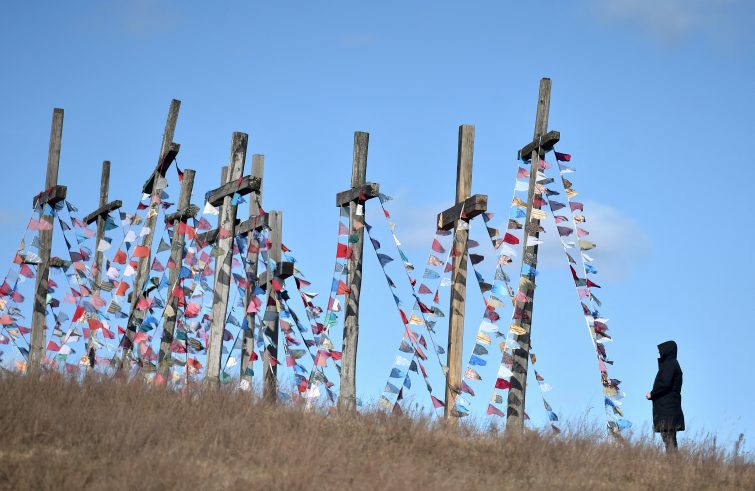
I read the Song of Ascents, the fifteen Psalms sung in sequence by pilgrims as they ascended the road to Jerusalem. “I will lift up mine eyes unto the hills, from whence cometh my help.”
At the time of Jesus, under the military dominion of Rome, this feast was the most solemn and the most heartfelt. That Passover commemorated, then and today, the Hebrews’ liberation from slavery in Egypt. “This year we are slaves, next year may we all be free”, is the phrase recited in Jewish homes for over two thousand years.
On the ascending pilgrimage to Jerusalem, the toil of the oppressed people grew more severe. The burden of taxation imposed upon the subject people was compounded by religious persecution. For the members of the first monotheistic religion, of the one and only God, the image of Jupiter/Iuppiter on the temple of Jerusalem was an aching sore. In the strenuous struggle against the occupying forces, thousands of youths had been nailed to Roman crossbeams raised high against the upright shaft and displayed for public view. To add to the contempt, they were stripped of their clothing.
Jesus enters Jerusalem with his disciples riding a white donkey, traditionally representing the authority of a King. He is welcomed by crowds of people arriving from throughout Israel and the Roman legion is prepared to suppress all protests.
The crowd gathers around the man riding the white donkey, a symbol of independence, a reminder of the Kingdom founded by King David, who chose Jerusalem as its capital. The man on the donkey is his descendant, through Joseph, adoptive father.
There is a public outpouring of enthusiasm and anticipation. He visits the Temple followed by a cheering crowd. As he enters the Temple area he makes a gesture of deliverance by expelling those who were selling and buying on the holy grounds, who had come to make good money.
Driving them all out of the temple is an act that reconsecrates the place where Israel celebrates Adonài Ehàd, its One and Only Lord. In that moment the Roman idols and their power are suspended.
The people are enraged, the insurrection is now ready, just a word from the descendant of David.
But he did not come to initiate one of many destructive ventures of resistance against the invader. He came to convert, not to subvert.
He has come for the festivity, not for the bloodbath. As the people await his signal to liberate the capital from Roman dominion, prepared not to be caught, he goes forth from the walls with his followers, dispelling the mistaken assumption that he is the leader of a revolt. He proceeds to celebrate the festive meal in a secluded place.
The people, deluded in their expectations, saw that they were missing a rare opportunity to gather in great numbers in Jerusalem alongside the one who had entered as king, inspiring feelings of deliverance.
People have fluctuating emotions, and in doing so, they disown the one they had acclaimed the previous day. They will not lift a finger for the one they had perceived as a deliverer. His demise was to occur as anticipated, through immolation on a barren mount.
Foreign occupation is nowadays’ equivalent of the epidemic: it reduces space, limits celebrations under the pressure of health emergencies. Insurrection against it is meaningless, but the invader must be isolated. Its room for manoeuvre and its ability to spread must be curtailed.
The expulsion of the merchants from the temple is tantamount to the closure of numerous businesses, for the temple is the social organism that must be protected. We will be experiencing yet another Easter of temporary exile.
“This year we are slaves, next year may we all be free.”










